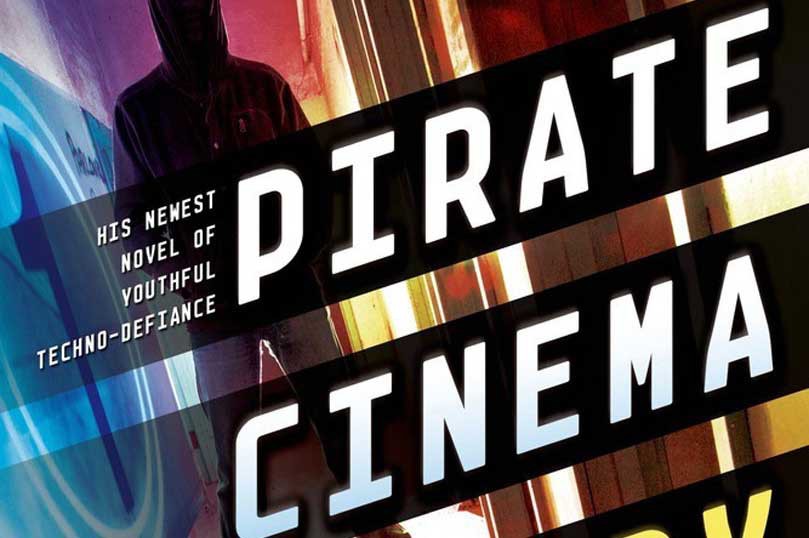The Secret World of Hardware Revocation
Written by Cory Doctorow
The entertainment industry has a problem. It wants to sell you products—books, games, music, movies—that you look at on your computer, but it wants to control how you use those products after you buy them. The industry has been sold on the idea that there’s a fortune waiting in selling “rights” for “uses.” If that sounds weird, it’s because it runs totally contrary to the way that we use our media today.
When you bring home a Settlers of Catan game box or a DVD or a CD or a hardcover, you assume that you have the “right” to do anything you want with it. You can use it at home. You can bring it to a tournament, festival or convention. You can use it on vacation overseas.
But! (the entertainment industry digital strategist says), what if you could pay half as much, and get a game or book or movie or song that you can only listen to at home? And later, if you want to do any of those other things, you can pay for them on an a-la-carte basis? Wouldn’t that be great? Why buy the cow when we’ll sell you the milk one glass at a time, exactly as much milk as you want to pay for and no more?
In practice, no one really seems interested in this offer, with the exception of video-on-demand online “rentals,” and that probably has more to do with the fact that most of us only watch the movies we buy once, anyway. A lot of us (myself included) are suspicious of this sort of offer. I don’t want price-tags on every button of my remote control, I don’t want to have to buy the “right” to pause a movie while I get up for a pee, even if it only costs a penny. I don’t want to have to buy the “right” to watch a movie with my friends if my TV detects that there are six people in the living room when I switch it on.
But the industry has bet big on this. Your home entertainment systems—amps, satellite and cable tuners, screens, media appliances like the AppleTV, and laptops—is designed to support it. And therein lies the problem.
Say your amp is designed to allow for full stereo surround-sound, except when a movie copyright holder chooses to limit you to mono sound. (Why would they do this? Believe it or not, the industry has said that it’d like to do this in connection with the distribution of new release movies, to keep “high quality audio track” from leaking online). The receiver receives the movie, checks to see what restrictions go along with it, and passes it on to the receiver, saying “Only play this in monophonic sound.” The receiver, being an obedient beast, obliges.
How does the receiver know that the amp will follow the message? Because the amp and the receiver do a little cryptographic handshake, exchanging keys that are only made available to manufacturers that agree to follow the rules. Inter-industry consortia like the Digital Transmission Licensing Administrator, Digital Content Protection LLC, Advanced Access Content System Licensing Administrator, and other dwellers in the smoke-filled rooms of the corporate world, set out and enforce agreements backing technologies like Blu-Ray, HDCP, and DTCP (those mysterious logos on your TV and associated stuff).
These arrangements include ongoing “management” of your devices. If someone on the Internet finds a way to trick your receiver into ignoring the restriction-messages that travel with media, the licensing bodies can force the manufacturer to automatically update it to avoid the hack. But that’s only half the problem.
What a specific device’s key leaks and is used to make “non-compliant” devices or software—that is, a program like VLC that will play DVDs even if they’re coded for a region other than the one your computer is registered in? VLC uses keys that leaked from other players to accomplish this trick. The manufacturer can fix their devices so that they no longer leaks keys, but the keys have been leaked.
Or what if a manufacturer goes out of business and later its products are found to have flaws that allow for “non-compliant” uses? With the company out of business, there’s no one to cajole into issuing a patch to restore the old restrictions.
The answer is “revocation,” a controversial idea that is present in some form in nearly all modern restricted media formats. In a revocation world, the licensing body periodically “revokes” certain keys and devices, either by requiring manufacturers to send out updates with lists of equipment that is no longer considered safe for restricted content, or by embedding the revocation codes in new movies, games, etc, so that the first time you play them, your equipment receives the list and updates its blacklist accordingly.
In the real world, the way that this is supposed to work is this: one day, you wake up and your amplifier, or projector, or DVD burner, or PVR, or laptop video app no longer works with any of the new media you buy. And when you try and play your old media, the parts won’t talk to each other: your computer will play the video back, but when it sends the audio to your home theater over Bluetooth or WiFi, no sound is played. Perhaps you get an onscreen message or an email that explains what’s happened, and perhaps you don’t. But either way, your stuff is broken, until the licensing body and the manufacturer come to terms on what it will take to un-break it.
There’s a flipside to this: the value of blacklisted equipment quickly falls to zero. If you want to have a home theater where you can play legit media, you need to throw out, update, or disconnect any blacklisted gear.
But say you don’t want to play by the rules. Say you want to be able to rip old media that was pressed before the revocation message went out and put it on the Internet. Or say you want to be able to play back the media that has been ripped and uploaded? Well, so long as you don’t care about buying the media you want to play, so long as you’re content to download it all with BitTorrent and its successors, you can happily go on using that “useless” blacklisted equipment—the kind of thing that will show up in e-waste landfills by the megaton. The kind of thing that people might pay *you* to take away.
That’s an idea I explore in Pirate Cinema, my new novel. Kids who want to make their own remix movies need equipment and tools that let them tear apart movies and music and reassemble them to their taste. The best way to get this is to simply step outside of the system altogether. The price is right—free. Not just free downloads, but free/near-free hardware already.
My friend Darren Atkinson supports his family by rescuing high-tech trash from the dumpsters outside of high-tech firms in Toronto’s suburbs. Today’s obsolescence curve already generates a massive surplus of technology that we literally can’t get rid of. Once you mix in deliberate, mandatory obsolescence for gear that pisses off technophobic Hollywood execs, we will move to an era of unparalleled plenty for people who don’t give a damn about playing by Hollywood’s rules.
…………………………
From the Tor/Forge October newsletter. Sign up to receive our newsletter via email.
…………………………
More from the October Tor/Forge newsletter:
- Big Smart Objects by Gregory Benford and Larry Niven
- The Books in the Book by Tina Connolly
- The Ingredients of a Hero (Not the Sandwich) by Christopher L. Bennett
- Law School, Magic School by Max Gladstone
- Ghost Collection Sweepstakes








This is exactly the set of premises and reactions that created the whole hackerverse, from phone “phreaking” to various hardware and/or software hacks to change the way objects worked. There have always been individuals willing and able to step outside the boundaries and manipulate objects for their own purposes and amusement. Unfortunately, they generally do not have corporate lawyers and the law on their side as do the large corporations. What the large corporations fail to realize is that pirating of media objects is caused by their own draconian attitudes and actions, a situation that will continue to spiral until the corporations come to realize that they could virtually cut out piracy by allowing small losses of media to be offset by increased word-of-mouth advertising and repeat sales with minimal DRM intrusion.
This is scary – and will probably never happen. The first time an actual revocation happens on a large scale the companies involved will be doomed, and they know it. No one will buy their stuff, except as pirated content or hijacked hardware. For anything like this to happen IRL would require the fabled conglomerate corporate government with a stranglehold on its people. Well.. fabled for now, anyway. 🙂
I am glad Cory continues to educate people on this. I wish I had Chris W’s optimism, but I don’t. The mainstream have been happily buying BlueRay content and devices and iOS devices without thinking about any of the longer-term political implications of doing so. The technology to implement revocation is pretty mainstream already in the most popular gadgets, and they already have the laws in most countries to legally protect this attack on our rights.
I go one further than Cory and say that any non-owner control of our devices is infringement of our tangible technology property rights https://teklaw.ca/own . I strongly believe that infringement of technology property righs is far more harmful (to the owners, to the economy, to society, and even to content creators) than *ANY* amount of copyright infringement. I wrote about the bad actors who are infringers and inducers of infringement in a recent submission to the Canadian parliament https://c11.ca/brief . The government unfortunately ignored the problem. Even though they claim to be a “Conservative” government with property rights in their founding principles of the political party, they went ahead with legalizing and legally protecting infringements and inducements of infringements of tangible property rights.
Funny how “Conservatives” can act like communists as long as you put technology into the mix which confuses them.